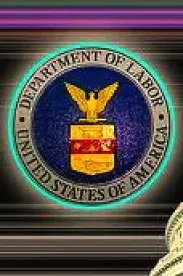The U.S. Department of Labor recently withdrew a proposed regulation that would have substantially expanded the definition of “fiduciary” under federal employee benefits law. The regulation will be re-proposed in early 2012, although it is unclear whether any proposal will be finalized prior to the 2012 presidential election.
The U.S. Department of Labor (DOL) recently announced its withdrawal of a proposed rule that would have substantially expanded the definition of “fiduciary” under the Employee Retirement Income Security Act (ERISA).
Background
Under the existing regulation, which the DOL published in 1975 shortly after the passage of ERISA itself, a firm or entity engaged to provide investment advice to a benefit plan is only considered a fiduciary for ERISA purposes if: it renders advice on a regular basis, it is pursuant to a mutual agreement; the advice serves as a primary basis for investment decisions; and the advice is individualized to the needs of the plan, a plan fiduciary or a participant or beneficiary. If a firm or entity does not satisfy all criteria, it is not considered a fiduciary for ERISA purposes and is shielded from the potential substantial liability that fiduciary status imposes under the law. Shortly after adopting the existing regulation, the DOL issued an advisory opinion confirming that a firm would not be a fiduciary when it provides a valuation of closely held employer securities in connection with an employee stock ownership plan’s (ESOP) purchase of such securities.
Last year, however, the DOL revisited this long-standing approach and proposed a new rule that would have expanded the definition of fiduciary for ERISA purposes. The proposed regulation made four significant changes:
- The proposal eliminated the requirement that the advice be rendered on a regular basis.
- Any advice considered in connection with investment decisions would be covered, thereby eliminating the “primary basis” element of the current regulation.
- The advice no longer would need to be provided pursuant to a mutual agreement.
- The proposal specifically included appraisals and fairness opinions and explicitly would overturn the DOL’s 1976 advisory opinion.
Response to the Original Proposal
The DOL received more than 260 written comments following publication of the proposed rule. Many emphasized the potential unintended consequences of the rule, such as the imposition of fiduciary liability upon valuation firms providing routine fairness opinions to ESOPs and the effect of the expanded definition on arm’s length commercial transactions. In addition, members of the Financial Services Institute, which represents independent broker-dealers and financial advisors, sent more than 3,000 letters criticizing the proposal to the White House, highlighting the proposal’s potential unintended consequences and urging reconsideration.
Where Things Currently Stand
The official DOL announcement indicates that the decision comports with President Obama’s January 2011 executive order on regulations, which directed agencies to conduct principled cost-benefit analyses prior to the passage of new regulations. However, the announcement concedes that the decision to reconsider is at least “in part a response to requests from the public, including members of Congress, that the agency allow an opportunity for more input on the rule.” In the announcement, the DOL indicated that it intends to coordinate with the Securities and Exchange Commission and the Commodity Futures Trading Commission to ensure the fiduciary regulation comports with the other agencies’ regulation of investment professionals and fiduciary conduct. The DOL also intends to address concerns regarding application of the rule to routine appraisals, unrelated to a transaction, and arm’s length commercial transactions, such as swaps. According to the announcement, the new regulation will be re-proposed in early 2012, which raises questions whether any proposal will be finalized prior to the 2012 presidential election.



 />i
/>i

